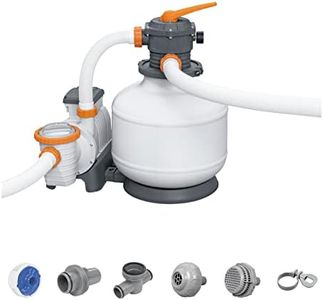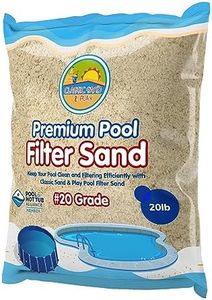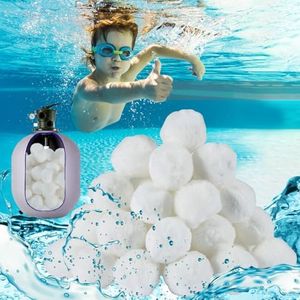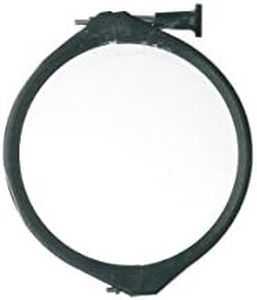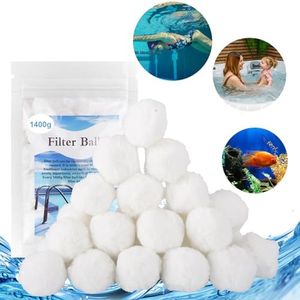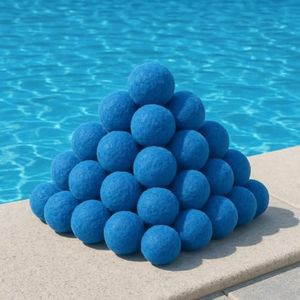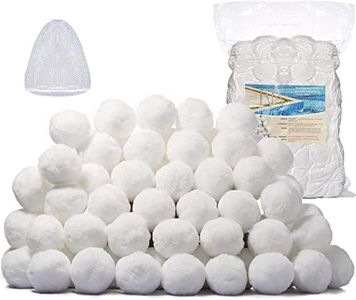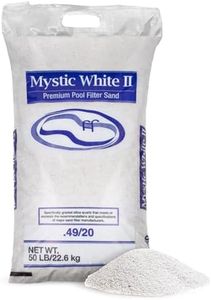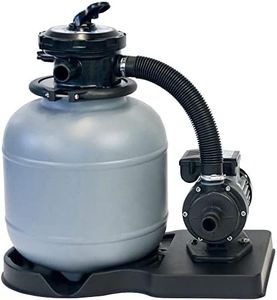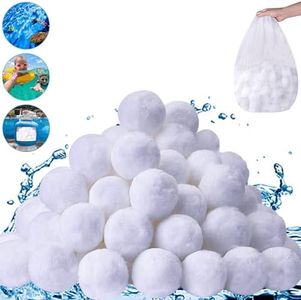We Use CookiesWe use cookies to enhance the security, performance,
functionality and for analytical and promotional activities. By continuing to browse this site you
are agreeing to our privacy policy
10 Best Sand For Sand Filters
From leading brands and best sellers available on the web.By clicking on a link to a third party's website, log data is shared with that third party.
Buying Guide for the Best Sand For Sand Filters
Choosing the right sand for a sand filter is crucial for keeping your pool or water filtration system clean and efficient. Not all sand is the same, and using the proper type will help your filter trap dirt and particles, keep water clear, and protect your equipment from damage. When deciding, you should understand which characteristics matter in sand—it's not just about grabbing any sand you find. The right sand will provide effective filtration while ensuring your system works smoothly and lasts longer.Grain SizeGrain size refers to how big or small each particle of sand is, usually measured in millimeters. This is important because the grain size affects how well your filter can catch debris: sand that's too fine may clog your filter and reduce water flow, while sand that's too coarse may let small particles through. Typically, pool sand filters use grains between 0.45mm and 0.55mm. If your filter's manual recommends a certain size, always follow that. For general use, finer grains catch smaller particles and give clearer water but can block up more quickly and need more cleaning. Coarser grains allow faster water flow and are easier to maintain, but may let more dirt pass. Match the grain size to your filter's design and your cleaning preferences.
Purity and CompositionSand purity means how much of the sand is made up of actual silica, without other materials mixed in. The best sand for filters is high-purity silica sand, also called quartz sand. Purity is important because other materials (like clay or organic matter) can cloud the water, damage your filter, and reduce performance. You want filter sand that's at least 95% pure silica. Lower purity sands can cause problems, so always check the labeling or product description. Stick to sand labeled specifically for pool or filter use to ensure a good level of purity.
Shape of the GrainsThe shape of the sand grains matters a lot as well—filter sand should have sharp, angular edges, not be rounded like beach sand. Angular particles create more tiny spaces to trap dirt and debris as water flows through. Rounded sand allows particles to slip through more easily, making filtration less effective. Always choose sand designed for sand filters, as it’s processed to keep the grains angular. If you use the wrong kind, the filter’s cleaning ability drops significantly.
Sand LifespanThe lifespan of sand refers to how long it remains effective in your filter before needing replacement. Over time, the sand grains become smooth and rounded from constant water flow, so they trap less debris. Most filter sand works best for about 3-5 years, depending on how often you use the system and how well you maintain it. If your pool starts looking cloudy or you notice reduced water flow, it may be time to change the sand. Check your filter’s manual for recommendations. Pick a sand that’s well-rated for durability, especially if your filter has to handle heavy loads.
